Philip Larkin and the truth about mum and dad
As a new book of Larkin's previously unseen letters to his family is released, Martin Chilton looks at what can be learnt about the iconic poet

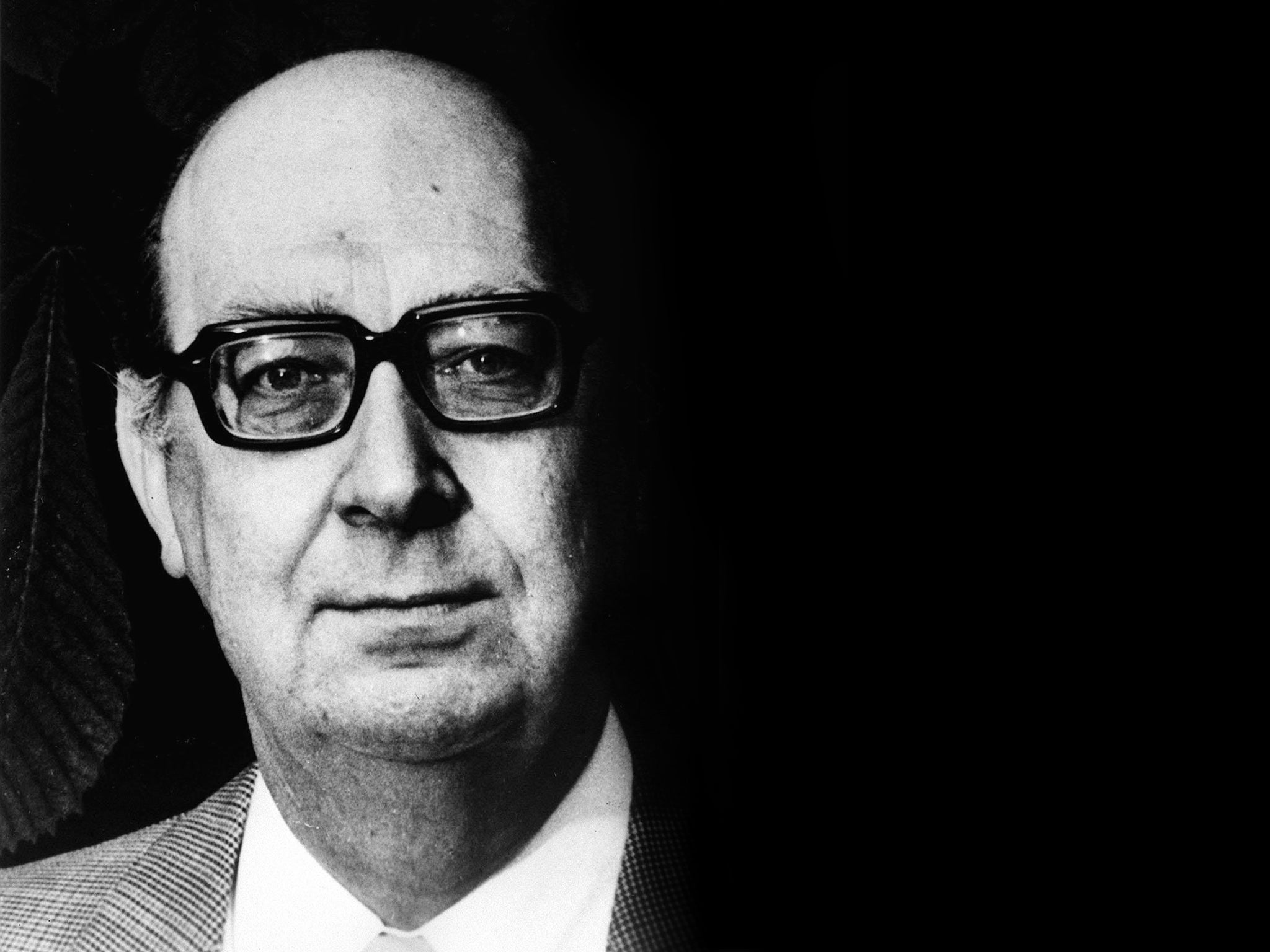
Your support helps us to tell the story
From reproductive rights to climate change to Big Tech, The Independent is on the ground when the story is developing. Whether it's investigating the financials of Elon Musk's pro-Trump PAC or producing our latest documentary, 'The A Word', which shines a light on the American women fighting for reproductive rights, we know how important it is to parse out the facts from the messaging.
At such a critical moment in US history, we need reporters on the ground. Your donation allows us to keep sending journalists to speak to both sides of the story.
The Independent is trusted by Americans across the entire political spectrum. And unlike many other quality news outlets, we choose not to lock Americans out of our reporting and analysis with paywalls. We believe quality journalism should be available to everyone, paid for by those who can afford it.
Your support makes all the difference.It is a touching image, from a bygone age, to think of Philip Larkin composing thousands of letters and cards to his family, always writing with his favourite fountain pen.
The habit started when he was a 14-year-old schoolboy, with a postcard from Germany to his sister Kitty, and continued until he was a world-renowned poet, sending mail to his 91-year-old mother in a nursing home.
Much of his prolific correspondence has been published before but a new book, Philip Larkin: Letters Home 1936-1977, features previously unseen mail to his family. These letters shed new light on the poet who wrote the much-quoted first line: “They f*** you up, your mum and dad.”
There are oddities galore to glean from the 607 letters selected for the book (out of more than 4,000 that he sent), including the admission from the traditionalist that he happily sat in a first-class train seat while the “slack” guards missed the fact that he had only paid for a second-class ticket. And who would have imagined that portly old Larkin was once so competitive at squash that he developed blisters all over his hand?
The tone of the letters changed considerably over 40 years, although the sense of playfulness evident in the young Oxford undergraduate is still happily evident in the older celebrity librarian of the University of Hull. Larkin described his father Sydney and mother Eva as “shy and inhibited” and was self-aware enough to admit that “I realise that I contain both of them”. As a whole, they present a more tender and loving familial relationship than would be suggested by his famous “This Be the Verse” poem or his sour remark that he never left his home without a sense that he was walking into a “cooler” and “saner” atmosphere.
After growing up in Coventry, where Sydney was the city treasurer before and during the Second World War, Larkin won a place at the University of Oxford’s St John’s College in October 1940. mum and dad may have filled him with the faults they had, but they financially bailed out their undergraduate child on many occasions, answering his plea for clothes (“send some under-clothes please”) and for money (“this seems a good time to warn you I am down to my last £3”). They also sent him gloves and copious socks. “Seven enormous pairs of socks smile sweetly at me,” he exclaimed. Perhaps Eva realised that a 20-year-old who boasted of buying Oxford’s only pair of “dark crimson trousers” could do with some help shopping. Touchingly, she also sent him lots of lilies to brighten up his room.
Larkin was studying at a time when the hardships of war affected everyday life. His descriptions of his culinary experiences as a student displayed a youthful gift for biting wit. He kept his parents up-to-date with news about the inedible porridge made with sour milk, and how he was subsisting on “weird pots of fish paste”. He bemoaned the fact that rationing meant there was no Marmite to be found anywhere. “Yesterday we had grilled herrings. They tasted simply awful: as if all the fishwives and fishmongers in Billingsgate had contributed a gob of spittle to their glutinous horror,” he recalled of one particularly grim breakfast in 1940. Food anecdotes continued for the next four decades, including his wry observation that Shredded Wheat “is rather like eating a bird’s nest”.
In the letters, Larkin used numerous pet names for his parents, including My Dear Pop, Pop & Mop, Dear fambly, My dear Mrs Larkin, Dearest Mop creature, Dear Creaturely Mop, My dear old Monst-Haugh and Mop Monst-Haugh – but never plain old mum or dad.
In 14 November 1941, 13 months into his English language and literature degree, Larkin’s home city of Coventry was shattered by a Nazi blitz that killed 554 people. His father stayed all night at his post in the council building to help and Larkin wrote to his “dear Pop” to ask plaintively, “what is happening in the world?”.
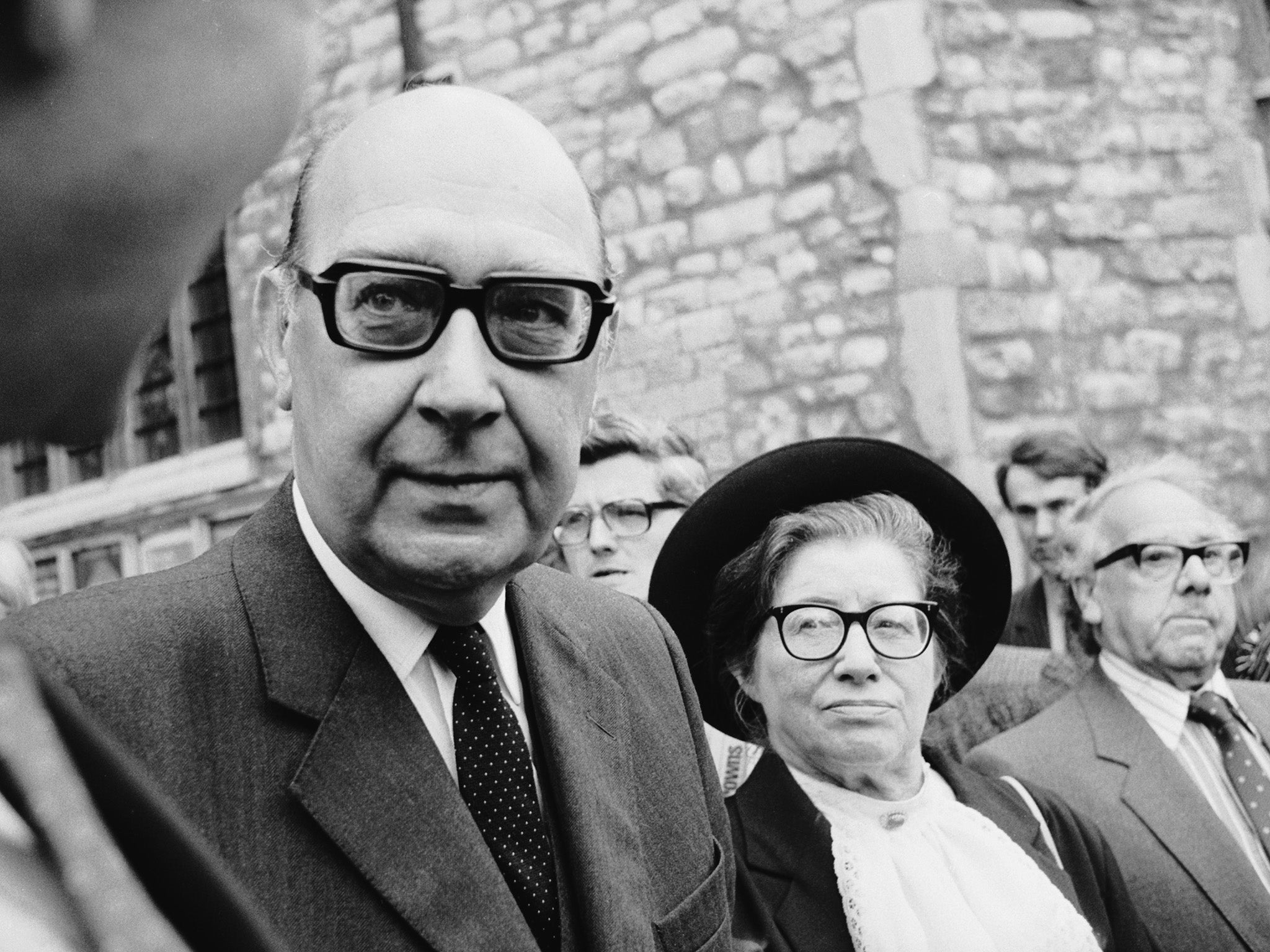
Around the time of those air raids, Larkin praised his father’s “powerful style” of letter-writing. “You sound utterly detached, cold, impersonal,” the 20-year-old son told the 57-year-old father. As well as emulating his father’s ability to cast a cold eye on life, the aspiring poet shared some of his father’s political views. Larkin told him of the “Communist agitation” at Oxford and how he resisted being “badgered to join the Labour Club”.
Sydney held crudely anti-Semitic views and one of the most dismal aspects of this collection of intimate letters is the casual and cruel racism evident in his son. Larkin told his mother that Enoch Powell’s speeches about immigration showed that he should be the leader of the Conservative Party. Larkin also wrote about his phobia regarding London, including the bizarre revelation that it was down to a fear of “West Indian & Pakistani germs hopping on me in the tubes”. In 1973, he informed his mum that London was “full of Indians and negroes (serving), who move like tired old snails & don’t know anything about anything”.
All this poison seems at odds with a man who had a lifelong love of jazz and respect for black musicians (first encouraged by Sydney buying his young son a subscription to the music magazine DownBeat).
Larkin eulogised about “the damn fine jazz record shops in Oxford” and later recounted the trouble he endured to travel from Hull to Sheffield for a Duke Ellington concert. He described New Orleans trumpeter Louis Armstrong as “the Shakespeare of jazz”.
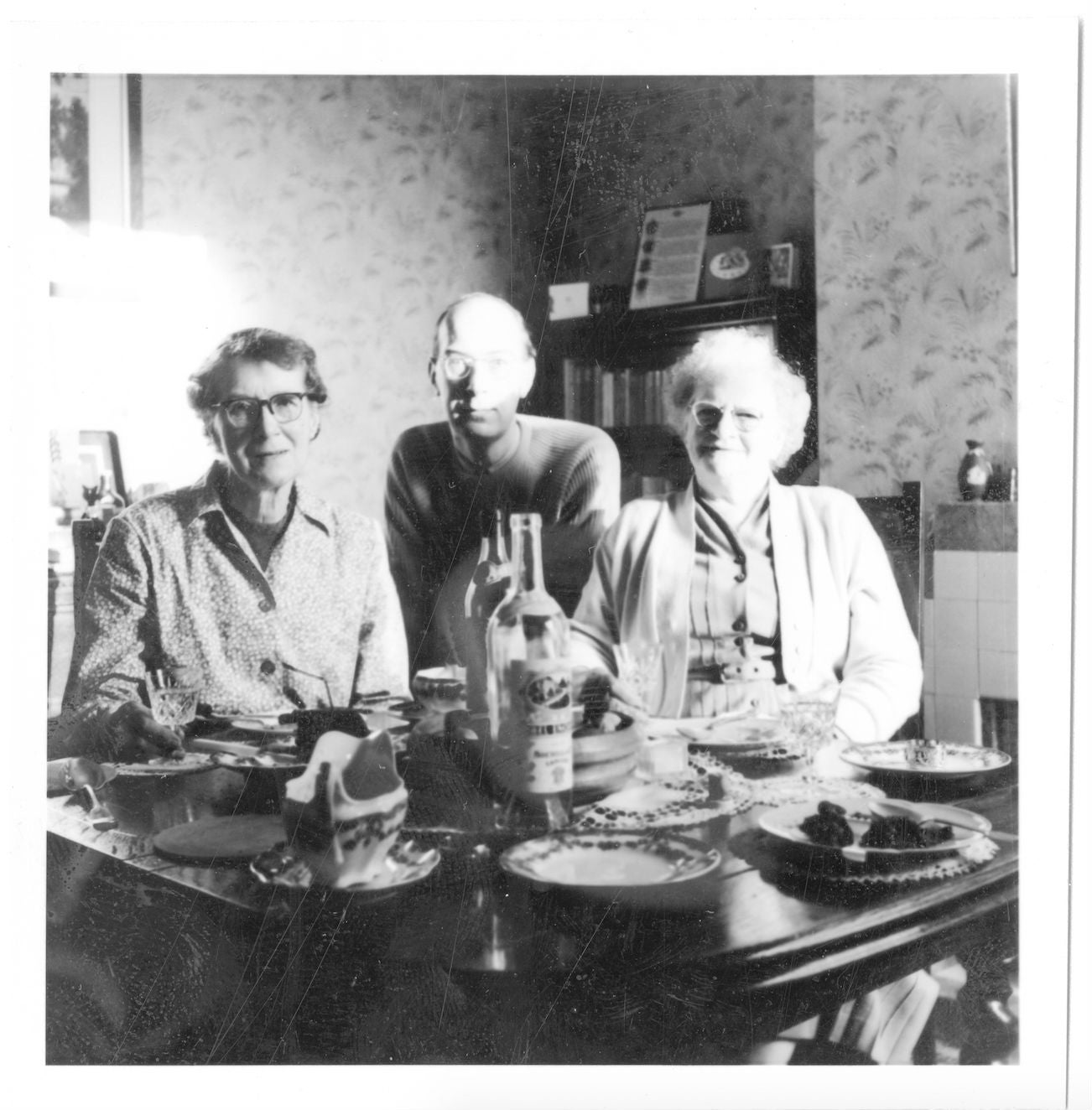
Although psychoanalysing people after they’re dead can be facile, it’s fair to say that the letters reveal a man who was clearly full of contradictions. The student who wrote home to say he would not be playing sport at Oxford – “I’ve got no team spirit so what the hell’s the good of joining teams” – enjoyed playing for the St John’s College hockey side. The same poet who turned down an OBE in 1968 accepted a CBE a few years later.
Larkin could be affectionate and generous, and mean-spirited and cruel. His descriptions of the physical flaws of strangers were as corrosive as they were imaginative. One college official was called a “toad-like man”, a fellow student was “a very smooth young man, like a guinea pig”. A librarian who annoyed Larkin was branded ”an objectionable little man like a constipated bank clerk”.
A stanza in “This be the Verse” warns:
“Man hands on misery to man.
It deepens like a coastal shelf.
Get out as early as you can,
And don’t have any kids yourself.”
The Larkins were simply not very sociable people, the poet admitted. When his mother, who lived the last 29 years of her life as a widow after Sydney’s death in 1948, admitted she was starved of company, Larkin told her that “a few hours of anyone is always enough for me”. This vague disquiet with humanity sometimes boiled over into out-right misanthropy, particularly with irritating work colleagues. In 1958, while living above Bill and Janet Duffin and their family in Pearson Park in Hull, he revealed to his mum how much he hated them. “The squealing of the little girls, the deeper imbecilities of Duffin himself, all mingled with stamping of little feet, crashes and explosions ... I should like to hurl tear-gas bombs down the chimney.” Arthur Wood, his deputy at the library, also grated on Larkin’s nerves. “Why can’t some of the road accidents remove him from my sphere? Ugh, Grr,” he wrote to Eva.
Hull en masse fared no better. “A horrible chip-infested place with swarms of depressing cut-price, kid-dragging people, caricatures of every vapid vulgarity,” is how he described the city’s Market Place in 1962.
His mother was probably well used to his disparaging remarks about people. As an avid reader of literature, however, she enjoyed hearing his accounts of meeting famous writers. Larkin liked Poet Laureate Cecil Day-Lewis and was even complimentary about George Orwell, whom he declared “very nice” after meeting him in 1943, when the author of Animal Farm gave a talk at Oxford’s English Club. But woe betide any annoying writer with physical imperfections. “Dylan Thomas is an incredibly small and tousled, grubby Welshman,” Larkin wrote. “His face is round with a comical snubby nose, fat cheeks, incipient double chin and two flabby lips.”
Larkin said he found it “hard going” talking to EM Forster and dismissed him peremptorily as “a toothy little aged Billy Bunter”. Larkin’s meeting with poet William Empson (“...he came to the pub & blathered on”) prompted the warning to his mum that “honestly, all writers are utterly awful when you meet them”.
Jibes about buck teeth and flabby lips aside, Larkin’s letters were full of generous praise about the merits of many other writers and poets, and he constantly urged books on his mother, especially those of DH Lawrence. He told her to try Sons and Lovers and give up “the turgid The Rainbow”.
Their relationship was unusually frank and modern for such a prim era. In 1942, the 20-year-old Larkin joked freely with his mother about obtaining a controversial unexpurgated copy of Lawrence’s Lady Chatterley’s Lover.
“Mine eyes have seen the glory of the Coming of the Lord,” he jested, about a book deemed too explicit to publish in the UK until 1960.
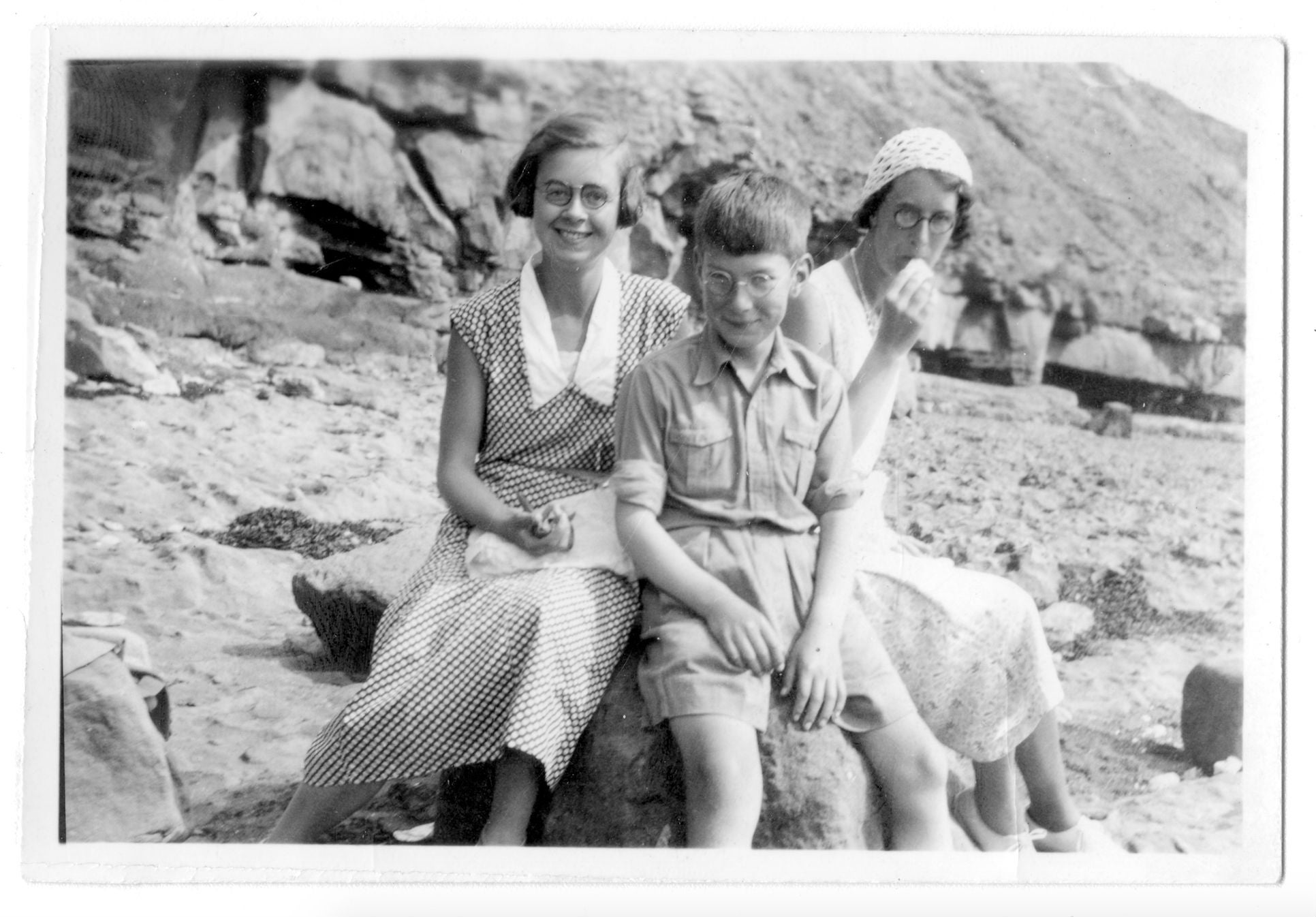
Alongside the high-brow book recommendations, there were more mundane reflections on everything from darning socks to doing the football pools (Larkin usually flopped in his attempts to win Vernons’ Treble Chance). He was able to express his more personal concerns, whether it was the return of his childhood stammer while at college or the light-hearted accounts of his “non-acting bowels”. As late as January 1953, by the time he was a grown man of 30, his mother was still chiding him about sleeping in too late.
The correspondence in the wake of Sydney’s death from liver cancer at the age of 63 was full of pain. “I spend so much time wondering how you are,” he wrote. She was lonely, suffered mental health problems and lived in a “prison of misery” according to Larkin. In June 1955, after several years of suffering, he praised her bold decision to see a psychiatrist. “I expect if he proposes shock therapy he won’t see your arse for dust,” he said with trademark gallows humour. She did, in fact, undergo electric shock treatment at a Leicester hospital that specialised in “nervous problems” and her correspondence to Larkin revealed that it had left her “shaky and sick”. In the midst of this harrowing experience, she was still able to write to the son she adored and tell him: “I feel very proud to know you are now recognised as a foremost English poet.”
It is noticeable how often the word “dreary” cropped up in the vocabulary he used in letters and Larkin knew that he too was vulnerable to mental health problems. After he saw a poster for the Samaritans in Hull, it prompted an especially candid letter. “I’ve felt fairly depressed recently for no very good reason. I think one is stamped with a particular kind of character, like a butter-pat having a cow or leaves stamped on it and just has to struggle away with it,” he told his mum.
In all these family letters, Larkin was never really open about his love life, though. He was evasive about his two-year engagement to teenager Ruth Bowman (1948-1950), emotions he exorcised in later poems such as 1964’s “Wild Oats” (“...I was too selfish, withdrawn,/And easily bored to love./Well, useful to get that learnt.”). References in the letters to Monica Jones, his muse and mistress over four decades, tended to be perfunctory and unrevealing.
His mother loved the constant flow of homemade birthday cards and letters, some of which contained sentimental poems composed for her (published for the first time in the book). Hundreds of the letters contained his own quirky and witty cartoons. His mother was drawn as the “creature” or a woman with a cap. To her, they were “delightful”. “Your letter once again gave me so much joy and when I came to the sketch of me I laughed outright,” she replied in 1952. She didn’t seem to mind his eccentricity. He told her about a particularly vivid dream. “You were dead, Daddy was alive,” he remarked, insensitively.
Larkin’s powers of description, so evident in masterpieces of poetry such as The Whitsun Weddings, sparkled throughout his correspondence, whether he was writing about a trip to Paris, a holiday by the Scottish Lakes or the esplanade at Carrickfergus. His mother loved her son’s similes. “The sky was like an enormous bruise,” Larkin wrote about a rainy autumn day in Belfast.
Perhaps inevitably, the letters towards the end are more forlorn. Larkin had his own health worries by the mid-1970s (his weight had risen to 15 ¼ stone and he wished “I hadn’t got such a double chin”) and there were times when he had to apologise for having lost his temper in phone calls. Yet the tenderness he felt about the woman who had broken a hip, and reluctantly had to live in a care home, was obvious. She told him it was a desolate place. “There isn’t a soul about, I do wish there was,” she wrote sadly.
In one of his last visits, before her death in November 1977 at the age of 91, they watched Laurel and Hardy together on the television – the same comedians she had once taken him to see at the cinema as a young boy. “Wasn’t it funny?” he noted touchingly in one of his final postcards.
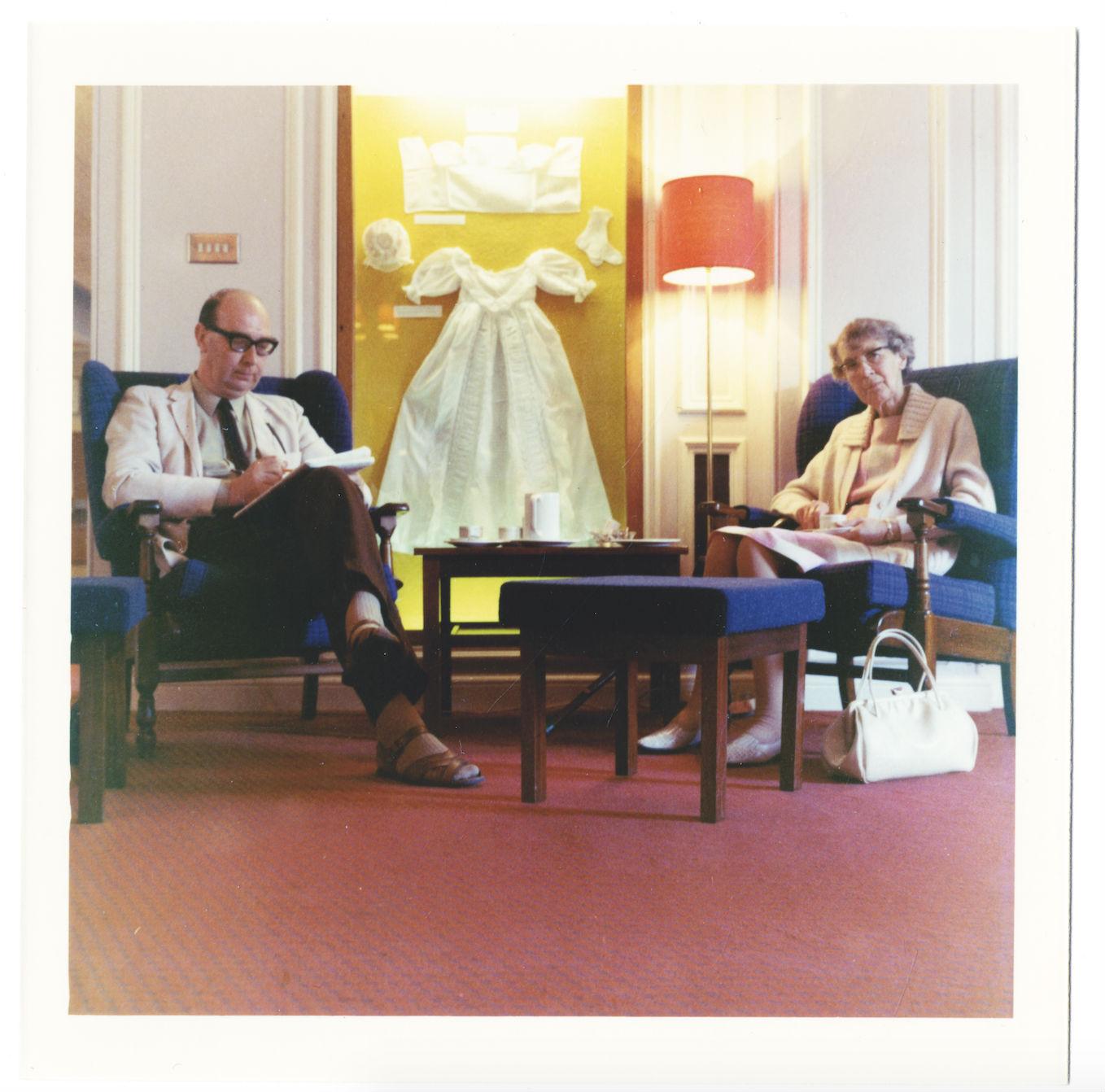
The most moving letter in the collection, however, is also the most life-affirming. When his mother was at a really low ebb in February 1952, dwelling on thoughts about her dead husband, Larkin wrote with advice about life.
“Do not worry about the past: it is, after all, past and fades daily in our memory & in the memories of everyone else,” he wrote. “Further, it can’t touch the future unless we let it. Every day comes to us like a newly cellophaned present, a chance for an entirely fresh start … we are silly if we do not amble easily into the sun while we can, before time elbows us into everlasting night & frost.”
Philip Larkin: Letters Home 1936-1977, edited by James Booth, is published on 1 November 2018 by Faber & Faber (£40, 688pp)
Join our commenting forum
Join thought-provoking conversations, follow other Independent readers and see their replies
Comments